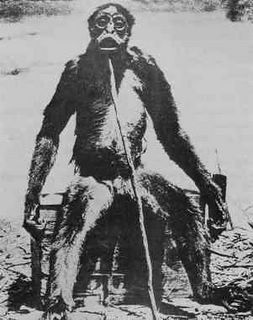
Travel Writer Bondage
Los Angeles Times
Susan Spano
So you want to be a travel writer?
I often receive letters asking how to break in to travel writing. "I love to travel," they generally begin, "and want to share my experiences…. "
There's no easy way to answer the question or to clearly describe this profession. What little has been written about practitioners of the craft is decidedly uncomplimentary.
"What's Become of Waring?" a little lark of a satire written in the 1930s by English novelist Anthony Powell, begins with the sudden death of a famous travel writer who signs his books T.T. Waring, more an alias than a nom de plume for this scoundrel and plagiarist.
As the story unfolds, the reader learns that he has faked his death to keep eager readers from expecting future books by Waring. That's because he has just married a rich widow and no longer needs to write for a living.
Anne Tyler's 1985 novel, "The Accidental Tourist," is also about a travel writer but this one hates to travel. Her Macon Leary writes guidebooks that assist businessmen in moving about the world in an insulated bubble. Between research trips, Leary is a sad-sack couch potato, desperately in need of the psychological shake-up Tyler gives him in the novel.
Santo Cilauro, Tom Gleisner and Rob Sitch wrote a sendup of travel guidebooks that was published two years ago, "Molvania: A Land Untouched by Modern Dentistry," featuring a made-up country and authors. These included Philippe Miseree, a professional traveler who finds every destination he visits "not half as good as it was in the 1970s," and Andy "the Animal" Wilson, whose first trip overseas ended with a prison term for setting fire to a monk in Bali.
Such is the rogues' gallery of travel writers in literature. In reality, they aren't all charlatans and criminals, but they are an odd lot.
Most of them — myself included — have scant preparation and back into the profession, which is an illegitimate child in the world of the letters. There's no graduate program culminating in a master of travel arts degree. Journalists consider it frivolous and easy. Poets and novelists look at it as slumming.
The glamour tends to wear off for those who make travel writing an occupation. It sounds wonderful to fly off to Tahiti or Paris to research a story. But consider the joys of jet lag, sightseeing when you have diarrhea, rental car accidents, the occasional mugging.
Professional travelers can rarely have dogs, gardens, children or any other variety of significant other. And forget the romance of the road. Even if you meet Mr. Right in Jaipur, India, you have to be in New Delhi the next morning.
Rick Steves once told me about the research trips he takes for his "Europe Through the Back Door" guidebook and his public television series.
"When I'm in Europe," he said, "I don't hang out on the beach. I hate being with people, because I'm working. There's no time to be polite when I have to see 15 hotels in a day."
Then, there's the other part of the job people tend to forget: writing on deadline. If they think about it at all, I'm sure they envision Hemingway, cafe-style scribbling, elbow on the table and chin in hand. The truth is it's long days of solitary work, holed up at home or somewhere quiet, drinking cold coffee and writing marvels that are later cut because they're rot.
Travel guidebook writing is particularly thankless, I quickly discovered when I did it in my younger days. The pay isn't great. The formatted nature of series guidebooks curtails creativity, leaving authors' favorite bons mots on the cutting-room floor. Most guidebooks are the work of a team of writers, who share the credit in fine print.
There's more satisfaction in writing about travel for newspapers and magazines, I've found, but full-time positions are rarer than black truffles in the Mojave. As a result, many travel articles are the work of hobbyists and freelancers who know that finding a magazine or newspaper to publish their stories can be harder than researching and writing them.
"Yes," aspirants to the profession say, "but think of such famous travel authors as Frances Mayes, Paul Theroux, Jan Morris. That's the kind of travel writer I want to be."
Me too. But even if you tied Mayes or Morris to a chair, I doubt they'd be able to tell you what it takes to succeed.
When asked that question, all I can do is generalize. To me, the most important component of good travel writing is service; even the finest descriptions are useless without such practical information as opening hours and admission prices. Getting those facts right is about as glamorous as working in telephone solicitation.
Next in importance comes teaching. To travel is to learn, which is chiefly why I love it. So I take educating myself and, in turn, my readers as a mandate.
Finally, aspiring travel writers are only as good as what they read, which is why they need to do so widely and well. Foraging through literature and history provides themes and details beyond those rehearsed by every guidebook on the shelf. It suggests uncommon subjects for stories and magically makes your writing better.
That's partly what led me to "What's Become of Waring?" which, of course, tells only part of the story about the seemingly disreputable, hackneyed profession that people who were concerned about my future often discouraged me from pursuing. I took a lot of wrong turns along the way but then got lucky. All caveats aside, travel writing is a job in a million. I'll never fake my death, even if I land a rich widower.
Los Angeles Times Story about Travel Writing Profession
No comments:
Post a Comment